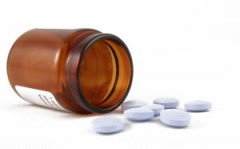How Do Regulations Affect Athletes’ Doping Decisions?
 In 2013, the International Association of Athletics Federations announced that as of January 1, 2015, any athletes with serious doping offenses will receive a four-year ban on competition participation, which for many could mean prohibition from the Olympics. But David Epstein of Sports Illustrated Magazine predicts this won’t stop athletes from continuing to use performance enhancing drugs. Authors Vijay Mohan and Bharat Hazari researched this topic further in their article entitled “Cheating in Contests: Anti-Regulatory Problems in Sport” from Journal of Sports Economics to see how factors such as increased monitoring affected both the athletes’ decision to dope as well as their means of obtaining the drugs.
In 2013, the International Association of Athletics Federations announced that as of January 1, 2015, any athletes with serious doping offenses will receive a four-year ban on competition participation, which for many could mean prohibition from the Olympics. But David Epstein of Sports Illustrated Magazine predicts this won’t stop athletes from continuing to use performance enhancing drugs. Authors Vijay Mohan and Bharat Hazari researched this topic further in their article entitled “Cheating in Contests: Anti-Regulatory Problems in Sport” from Journal of Sports Economics to see how factors such as increased monitoring affected both the athletes’ decision to dope as well as their means of obtaining the drugs.
The abstract:
We examine the impact of regulation on the doping decisions of athletes in a Tullock contest. The regulatory measures we
consider are greater monitoring by sports authorities and a lowering of the prize in the contest. When legal efforts and illegal drugs are substitutes, an increase in anti-doping regulation may, counterintuitively, increase the levels of doping activity by athletes. Anti-doping regulation can also have the undesirable consequence of decreasing legal efforts; in our model, this always occurs when legal efforts and illegal drugs are complements, and under certain circumstances when they are substitutes.
“Cheating in Contests: Anti-Regulatory Problems in Sport” from Journal of Sports Economics can be read for free by clicking here. Want to know about all the latest news and research from Journal of Sports Economics? Click here to sign up for e-alerts!






















































































